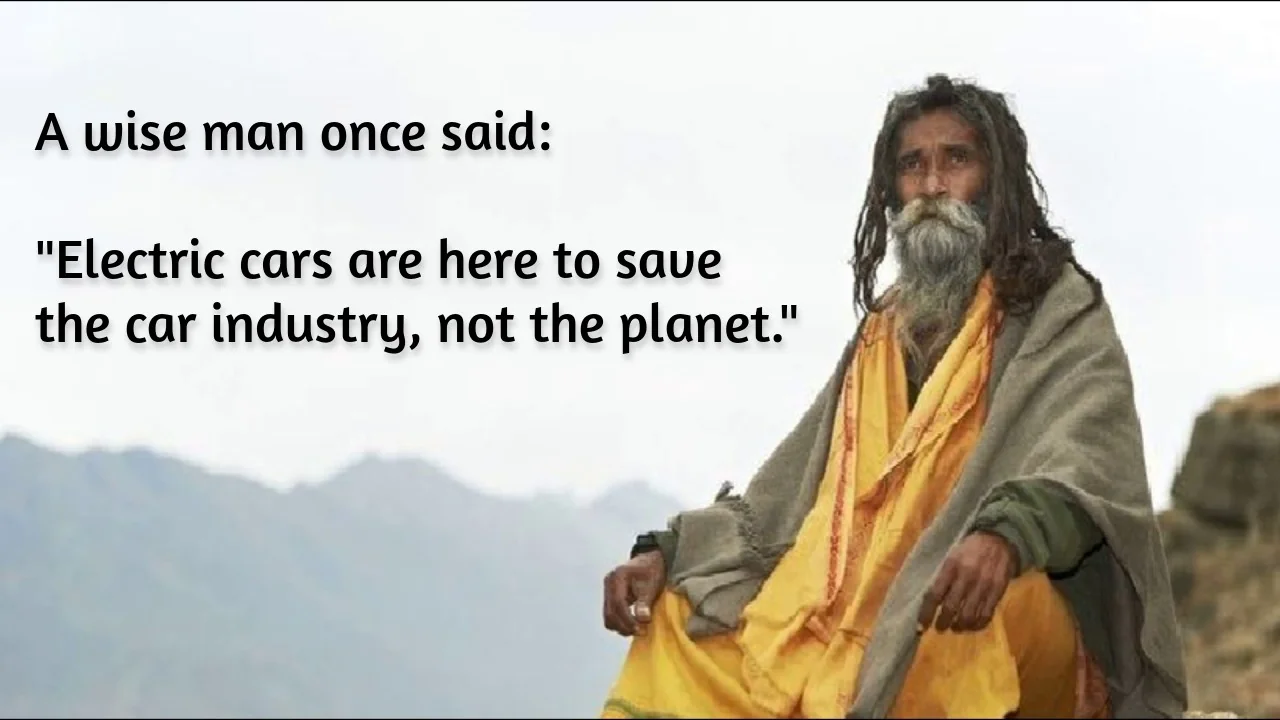Fuck Cars
A place to discuss problems of car centric infrastructure or how it hurts us all. Let's explore the bad world of Cars!
Rules
1. Be Civil
You may not agree on ideas, but please do not be needlessly rude or insulting to other people in this community.
2. No hate speech
Don't discriminate or disparage people on the basis of sex, gender, race, ethnicity, nationality, religion, or sexuality.
3. Don't harass people
Don't follow people you disagree with into multiple threads or into PMs to insult, disparage, or otherwise attack them. And certainly don't doxx any non-public figures.
4. Stay on topic
This community is about cars, their externalities in society, car-dependency, and solutions to these.
5. No reposts
Do not repost content that has already been posted in this community.
Moderator discretion will be used to judge reports with regard to the above rules.
Posting Guidelines
In the absence of a flair system on lemmy yet, let’s try to make it easier to scan through posts by type in here by using tags:
- [meta] for discussions/suggestions about this community itself
- [article] for news articles
- [blog] for any blog-style content
- [video] for video resources
- [academic] for academic studies and sources
- [discussion] for text post questions, rants, and/or discussions
- [meme] for memes
- [image] for any non-meme images
- [misc] for anything that doesn’t fall cleanly into any of the other categories
Recommended communities:
view the rest of the comments

I didn't say it cost gas only. Quite the opposite, I ignored the gas cost and shown only my rough cost of ownership. It's just the fact that the huge entry price of buying a car is put in parallel to low ticket prices, when really, it shouldn't. Otherwise you could also add the cost of shoes and clothes to the train ticket, because well you can't exactly ride a train barefoot and in your undies. And all the food for the energy spend walking from station to station, can't forget that.
Yes a decent car can cost between 5 - 10K used, but if you take care of it you will get most of that money back. And I'm not talking about SUVs or Pickup Trucks, but compact hatchbacks with 30mpg or 6-7L per 100km. The engines easily last 10+ years with regular but minor maintanace. 2000s Honda Civics and Toyota Corollas can easily outlast multiple generations of trains and busses.
My city has gone through 4 generations of bus fleets while my buddies dad still rocks a VW T4 camper probably on his 2nd milage gauge loop. We figured out how to make the perfect car in 1993 when McLaren build the F1. Nothing beats low weight and a reliable engine. The big mistake was letting heavy SUVs become the go to car for everybody. Historicaly speaking, it's an overcorrection from the US being invaded by small cheap and reliable Japanese hatchbacks in the 90s. An that I itself was an overcorrection form gigantic 20 feet long cars from the 70s and 80s. SUVs and Pickup Trucks are like a fashion trend, they are not here to stay. Slick E-vehicles seem to be the newest trend, they just haven't fully found the shape they want to be in yet.
From the point of physics, a train weighs hundreds of tons and is pulling another hundreds of tons of weight. A hatchback weight 1-2 tons. They work on the same principles. They need energy to accelerate their mass. Trains need to carry a lot of people to break even otherwise they are just pulling themselves for nothing. You should be uncomfortable having a whole cart to yourself. Sure a car might be 100 times lighter but the train can carry 200 times more people at max capacity. Max capacity being an important factor. Most trains travel way below that. Remove all the traffic lights and hills from a cars path and it will be just as efficient as a train. Trains are just really good mass haulers.
One of the major advantages that trains have over cars is their electric engine. Electric engines have an efficiency of roughly 80 - 90% for transferring energy into motion. Car engines only 20 - 40%. And combustion engine are at their economical limit. Putting electric engines in cars is putting them directly on par with trains.
Thats why we shift towards EVs, because we already have everything but the batteries and charging figured out anyway. Public transport is a political issue, EVs are an engineering and marketing issue.
Jeez I'm not reading all that. You have now twice tried to discount the cost of the vehicle. First you wanted to account only for gas. Second you wanted to call it "privilege", yes you then broke it down for some reason but you want to call it a "privilege" and not account for its cost in the actual transportation.
Fair enough. I realize that I mixed up owning a car, and being able to afford one. I double checked, and, one can own a car in my country while having low or no income and live in subsidized housing. But the value of the car is limited to a certain amount. So I stand corrected, technically "No" owning a car is not a privilege but is considered a basic necessary by our government. But thats only the case if you start collecting financial aid and already have a car. You won't be able to afford to buy one with the aid alone.
I was fortunate enough to have my parents pay upfront for my first car that I couldn't afford while I was in college. I paid them back in full over 2 years and didn't have to pay intrest to a bank. I call that privilege.